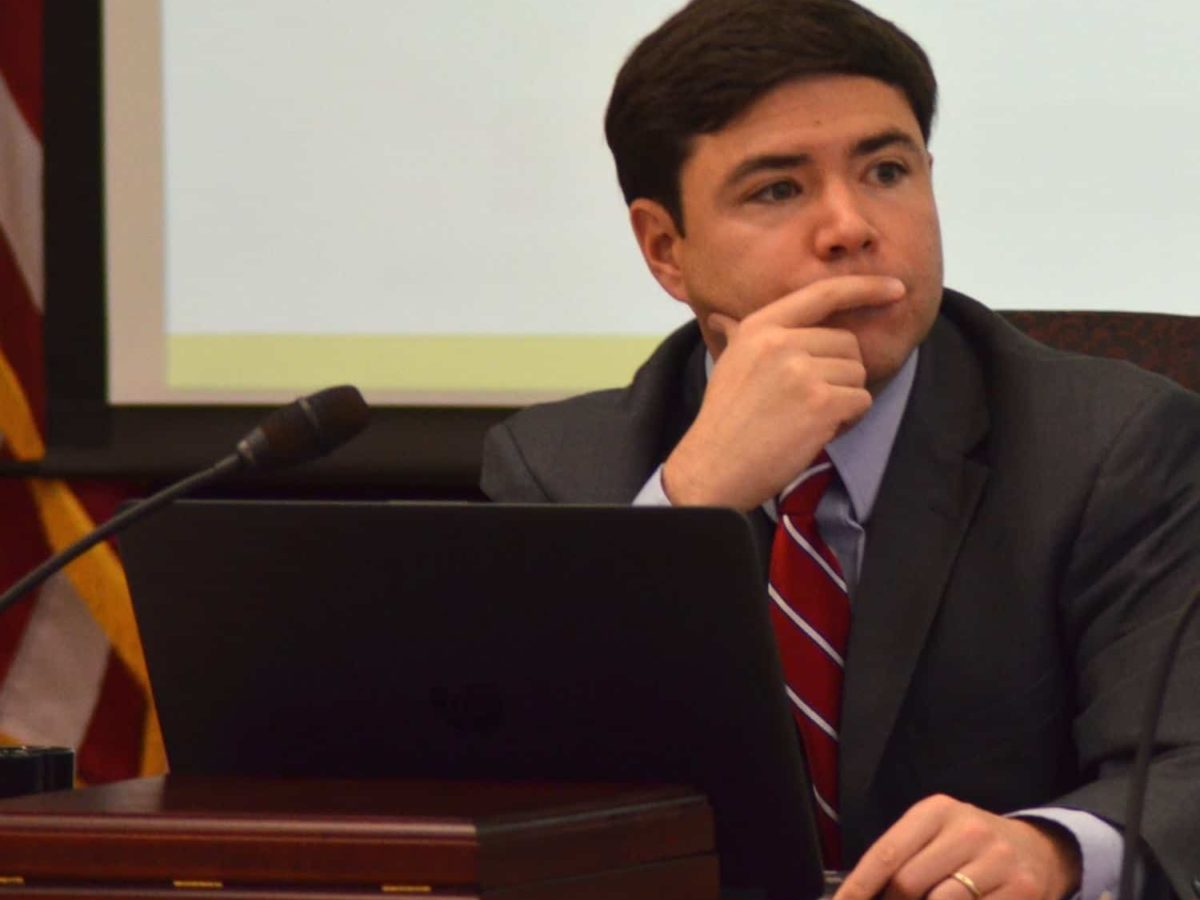

Last week brought word of a possible budget solution, the Istation implementation controversy boiling over in interesting ways, and hints that the legislature is going to push a bill that will reduce testing in the state.
It all got started last Monday with an email from state Superintendent Mark Johnson to teachers. It was a casually written note seeking to explain the procurement process that led to the adoption of Istation — the new reading assessment tool for Read to Achieve — and erase any doubts teachers might have.
In it, Johnson promised “the full story, gory details and all, as to what happened during the procurement process.” He went on to say that, “It’s not pretty.”
He mentioned “unfair advantages” that the “incumbent vendor,” Amplify, had over others, and called out some unnamed DPI staffers.
“The truth is the process to select a diagnostic tool had to be cancelled twice due in part to unethical actions by former DPI employees.”
And:
“Some bad actors at DPI went so far as to state that my efforts are just to ‘appease lazy a** teachers.’ I know North Carolina’s educators are working harder than ever, and I do NOT agree with that negative assessment.”
EdNC.org reporter Liz Bell has covered the Istation procurement process extensively, and I encourage you to read some of her work here and here. You can get some context on the “lazy a** teachers” comment and a better view of the entire procurement controversy. You can also search “Istation” on our website to read all of our reporting on the subject.
The timing of Johnson’s note was interesting because shortly after news outlets reported that the Department of Information Technology (DIT) was ordering Istation to halt implementation while it looks into the contract.
On Wednesday, Istation President and COO Ossa Fisher sent out a press release saying Istation wasn’t going to do that.
“We are evaluating the implications of the Department of Information and Technology’s decision to temporarily stay the award of the contract, but have not been asked to change course on the implementation process that is well underway in schools across the state. Istation will continue the work we started in North Carolina this summer training teachers and helping students develop critical grade level reading skills for a successful school year.”
And then, on Thursday, Johnson responded as well. He started off by explaining some of his credentials.
“I’m the NC Superintendent of Public Instruction, but I’m also a lawyer. That’s a good thing on weeks like this one.”
He went on to assess that DIT had “improperly issued an injunction…that ignored due process and was in contradiction of state law…”
“DIT rendered a decision after only hearing arguments from one party, the losing vendor, and failed to give DPI its proper chance to respond,” he went on to say.
He said that the state Department of Public Instruction has filed a motion to dissolve the stay issued by DIT. And then he called out DIT lawyers.
“DIT lawyers need to understand they are accountable to North Carolinians, not the CEO of Amplify. Given that DIT procurement specialists advised DPI throughout the procurement process, it is odd to begin with that the same department that approved the process is now in charge of reviewing that same process. ”
He continued, saying that DPI is “…reviewing our options to eliminate the uncertainty in our schools that DIT and this frivolous protest have recklessly created.”
The final turn in this saga came when late Friday Democratic Gov. Roy Cooper vetoed The Excellent Public Schools Act of 2019. The bill — sponsored by Senate President Pro Tempore Phil Berger, R-Rockingham — was meant to reform Read to Achieve, a program launched in 2013 that was intended to get students reading on grade level by the end of third grade. An analysis of the program by the Friday Institute for Educational Innovation, found the impact of the students in the program one and two years out to be “null.” The bill was meant to fix some of the problems the Friday Institute’s analysis discovered, including inconsistent implementation around the state.
Cooper mentioned the controversy over Istation when explaining his reason for the veto in a release Friday.
“Teaching children to read well is a critical goal for their future success, but recent evaluations show that Read to Achieve is ineffective and costly. A contract dispute over the assessment tool adds to uncertainty for educators and parents. This legislation tries to put a Band-Aid on a program where implementation has clearly failed.”
A way ahead on the budget?
There may be budget hope for community college leaders.
At a meeting of the North Carolina Association of Community College Presidents in Wilmington, presidents were briefed on the plan presented by House Speaker Tim Moore, R-Cleveland, last week to start moving pay raise bills through his chamber this week. The Senate has started to pull some budget items and move them as standalone bills. While it’s not 100% clear what this all means, it’s possible a mini budget bill on the community college budget priorities — which are relatively non-controversial — will surface in the coming days.
The community college system had a host of priorities this budget season and received much of what it asked for in the budget passed by the legislature. But that was all put on hold after Democratic Gov. Roy Cooper vetoed the bill because of his concerns about other items in the spending package. The House has held off on holding a veto override as it tries to get enough Democrats to swing the vote. Thus far, that hasn’t happened. Passing individual bills on portions of the budget could be a possible workaround.
Testing relief might be on the way
The House and Senate both had competing bills that would have reduced standardized testing in North Carolina public schools, but they were unable to agree on a single vision. House lawmakers tacked on some of their proposals to a Senate testing bill, leading to it getting shot down when it returned to the Senate.
The Charlotte Observer reported last week that a compromise may have been reached on that bill, and there are chamber votes scheduled for today. According to the article, the compromise would get rid of the North Carolina Final Exams but would keep a number of tests that the House plan initially would have eliminated.
We will have coverage of that vote on Monday.


